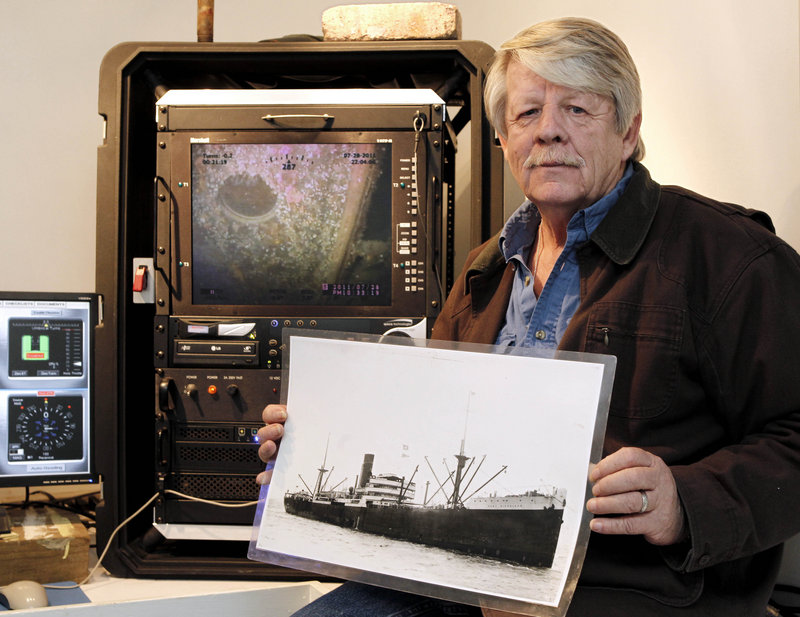A California businessman who last year partnered with Gorham treasure hunter Greg Brooks on the ill-fated salvage of a shipwreck off Cape Cod has ended the partnership.
Don Rodocker, CEO of Seabotix, a San Diego producer of remote-operated vehicles, said this week that he saw “no way to go forward” after revelations that Brooks’ chief researcher forged documents intended to prove there was treasure aboard the SS Port Nicholson.
“No one is ever going to fund him again,” Rodocker said of Brooks, who has been salvaging shipwrecks for three decades but has yet to find anything of substantial value.
Rodocker declined to say how much money he invested in Brooks’ enterprise.
Brooks’ attorney, Marshall Tinkle, wrote in a Feb. 17 status update in federal court that Brooks learned only last week that Rodocker and his investment company were terminating their partnership with Brooks’ company, Sea Hunters.
Tinkle said Brooks is now asking for an additional 30 days to find another partnership that would allow him to continue the salvage operation, which began in 2008.
If he fails, a judge may strip Brooks of his salvage rights to the Port Nicholson, which Brooks has claimed was carrying a secret cache of platinum, gold and possibly diamonds worth more than $3 billion when it was sunk by German U-boats in 1942.
PROBLEMS FROM THE START
He was awarded salvage rights in U.S. District Court, but his efforts have been fraught with problems since the beginning.
In the first few years, Brooks and his crew spent several weeks at the wreck site about 50 miles off Cape Cod without any progress. In status updates filed in court, Brooks blamed bad weather and equipment issues.
In early 2012, Brooks announced that he and his researcher, Edward Michaud of Framingham, Massachusetts, had discovered documents that proved the ship was carrying platinum.
The salvage continued, even as investors and others became increasingly skeptical.
Later in 2012, a group of investors led by Daniel Stochel of New York, who had provided $8 million to support Brooks’ operation, filed a claim to seize salvage rights. The court has not yet ruled on Stochel’s claim.
In a sworn affidavit submitted in December 2014, Brooks admitted that at least two historical documents used to prove that the ship contained platinum were fakes. Brooks said Michaud disclosed that he had fabricated the documents, which were admitted as evidence in 2012 in the ongoing court case.
Michaud is now the subject of a federal investigation.
Brooks has insisted that he played no role in procuring the fabricated documents. If they were used to solicit investments, it could constitute fraud.
Not long after Brooks filed his affidavit, federal investigators executed a search warrant of his home in Gorham, seizing financial records, historical documents and other materials related to his salvage operations.
Brooks has not been charged criminally, but has been under investigation by the Maine Office of Securities since April 2014.
Rodocker, who also has a long history of treasure hunting, had never worked with Brooks before and only found out about the forged documents from a reporter.
“We wasted a bunch of money,” Rodocker said. “Now, I have to tell my investors.”
As for whether the shipwreck actually contains any treasure, Rodocker said he doesn’t know what to believe.
“If there is anything there, it’s still there,” he said.
Send questions/comments to the editors.




Comments are no longer available on this story